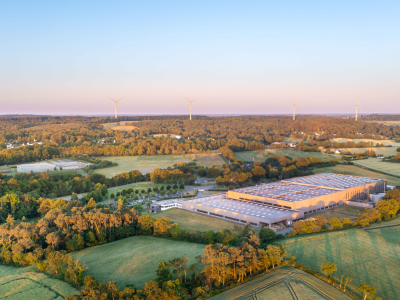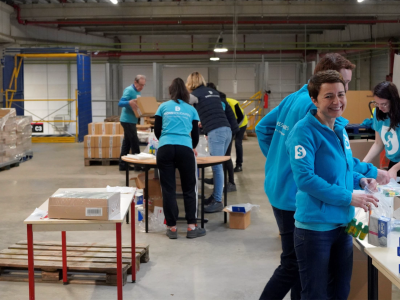BIODIVERSITY AT GROUPE ROCHER
Groupe Rocher has been committed to biodiversity since it formalised its first biodiversity protection policy in 2010, updated in 2021. In 2023, the Group has undertaken concrete, constructive and progressive actions in its activities and facilities through three strategic areas presented below.
Sustainable sourcing of plant-based raw materials
Detailed assessment of botanical supply chains is essential for analysing the economic, social and environmental practices of direct suppliers and their supply chains. This approach is based on three major pillars:
- Responsible sourcing in terms of quantity and quality for industrial use
- Protecting people and biodiversity
- Sharing the benefits of biodiversity equitably
In its commitment to sustainable sourcing, the Groupe Rocher aims to develop responsible and sustainable supply chains. In 2023, the sustainability assessment framework was updated to keep pace with regulatory changes and consumer expectations. In 2023, the Group identified more than 480 plant chains from 225 different botanical origins.
The Rocher Group has developed a programme to support the Tahitian Monoi sector in collaboration with its long-standing supplier, Pacifique Sud Ingrédients, and the Maison Familiale Rurale (MFR) in Papara. This programme includes a new Tiare Tahiti Professional Initiation Module (MIP) designed to ensure the long-term future of this ageing industry (with many growers retiring) by passing on technical and practical knowledge to young people at the MFR, who are often failing at school or from disadvantaged backgrounds.
In addition, since 2023, the Groupe Rocher has been working with its partners in French Polynesia to obtain UEBT certification for the Tiaré sector and to improve the copra sector. Biodiversity impact studies have been initiated locally with our partners.
Preserving living soil
Aware of the impact of its land holdings on the soil and living environments it occupies, the Groupe Rocher seeks to limit soil artificialisation on its sites as much as possible. A soil preservation index has been developed in-house, the Groupe Rocher Index for Soils Preservation (GRISP), based on ADEME's Coefficient de Biotope par Surface (CBS+), the Écopotentiel developed by Brussels Environment and the naturalness gradient and artificialisation scale indicator of the Club Infrastructures Linéaires & Biodiversité (CIL&B). This index makes it possible to determine the different levels of artificialisation of a site.
The purpose of the index is twofold: to identify the impact of the Group's sites on the soil, and to inform future choices about where to locate and relocate. After a development and test phase, the index was rolled out to the Group's own sites in 2022 and continued in 2023. In 2023, the GRISP stood at 0.4, identical to its performance in 2022.
Managing sites responsibly
Each site plays a crucial role in the Group's commitment to preserving biodiversity. Biodiversity management plans are drawn up and gradually rolled out at each industrial, agricultural and service site. The aim of these plans is to define a roadmap tailored to the specific characteristics of each site in order to reduce its impact on biodiversity and mobilise employees around these issues. To facilitate the development and implementation of these plans, the Group's sites are in the process of appointing biodiversity coordinators.
By 2023, 17% of employees belonged to a site with a biodiversity management plan.
The Groupe Rocher is deeply attached to its Breton roots and stimulates the vitality of all the regions in which it operates through its industrial activities and its involvement in local development. It strives to continually reduce its environmental impact, notably by setting up initiatives such as the sustainable woodland forestry sector in Brittany. Through this holistic and responsible approach, the Group demonstrates its commitment to preserving biodiversity and promoting sustainable practices for a better future.









